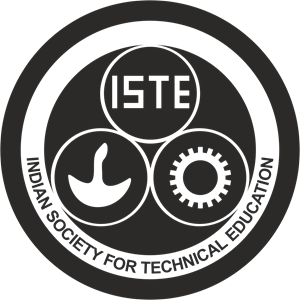Technology is evolving at a rapid speed and computer science is at the core of it. First, the scope of technology has no geographical boundary and isn't restricted to India. Computer Science is one among the foremost wanted courses by Indian students, due to the software package and IT boom of the past 20 years. Apart from putting India on the global map, technology has just about modified the full landscape of however individuals live. Right from social media to the genetics revolution, technology has taken a central role in several of the best technological innovations and developments of the twenty first century. Since this field is massively in style among Indian students, On the other hand, technology is set to grow in an incomparable manner within the coming few years, thereby creating a lot of opportunities for research.
The Department, which is equipped with a modern computer centre, provides the best and most up-to-date practical training. It is fully equipped with a variety of software that caters to the researcher’s demands while also meeting the curriculum provided by Anna University.
A web application could be a consumer-server application that uses customary Internet protocols for connecting the client to the server. We can use correctly the same methods to generate a exact Internet application, which is available publicly through the World Wide Web, or to generate an intranet application. Internet programming means that making websites and therefore the background work of it.Html, CSS, JavaScript languages used for it. It's mostly about web development and designing.
Multimedia is content that uses a mix of various content forms like text, audio, images, animations, video and interactive content. This laboratory introduces special effects, as well as formation and vector graphics, and internet multimedia system audio and video content. Multimedia system is content that uses a mix of various content forms like text, audio, images, animations, video and interactive content. This laboratory also introduces special effects, as well as raster and vector graphics, and web multimedia audio and video content. Multimedia graphic designers work on each print and motion graphics that mix the use of art and technology. The sector of graphic style usually focuses on exploitation text and pictures to make illustrations for print and web site productions.
Cloud computing could be a kind of computing within which dynamically scalable and sometimes virtualized resources are provided as a service over the web. Cloud computing services typically offer common business applications on-line that are accessed from an internet browser, whereas the software package and information are hold on the servers. It is expected that Cloud Computing can facilitate in pooling of computing resources of government Departments into massive clouds thereby increasing utilization of computing resources effectively. Besides, the self-service nature of cloud computing permits organizations to make elastic environments that expand and contract; supported the work and target performance parameters. The cloud is futuristic, and a reality currently and has become the foremost exciting development and delivery various to arise within the new millennium. Presently, cloud computing continues to be within the early adoptive parent part, however can still go in thought adoption. Cloud, with its economic, inexperienced and ascendible development and delivery mechanism, are a present to organizations and also the business advantages are simple. Although it may be seen as a threat to hardware makers, yet cloud offers tremendous chance in terms of package, services, networking, platforms, and infra-structure sharing “on-demand”. The event of the project is carried out using open source software toolkit like Eucalyptus, Hadoop, with CDAC open source OS BOSS.
Data Structure is a way to store and organize data so that it can be used efficiently. Data Structures is about rendering data elements in terms of some relationship, for better organization and storage A good algorithm usually comes together with a set of good data structures that allow the algorithm to manipulate the data efficiently. In this Programming and Data Structures Laboratory, we consider the common data structures that are used in various computational problems. You will find out how these data structures area unit enforced in numerous programming languages and can observe implementing them in our programming assignments. This will assist you to know what's happening within a selected inbuilt implementation of a knowledge structure and what to expect from it. You will conjointly learn typical use cases for these data structures. The main aim of this laboratory is to learn programming is to learn programming languages and implementing data structures
Mobile application development is the set of processes and procedures concerned in writing software system for, wireless computing devices like smartphones or tablets. The main aim of Mobile Application Development Lab is to Know the components and structure of mobile application development frameworks for Android and windows OS primarily based mobiles,
to understand the thanks to work with varied mobile application development frameworks , to learn the basic and necessary vogue concepts and issues with development of mobile applications. and to understand the capabilities and limitations of mobile devices.
Database Management system is a collection of interrelated data and set of programs to store and retrieve the data in an efficient manner. Database Management system has evolved from a specialized computer application to a central component of modern computing environment and knowledge about database has become an integral part of computer science . The main aim of this laboratory is to have a good understanding of the fundamental DBMS used in the computer science and to design new databases. Keep abreast of current developments to continue their own skilled development. To engage themselves in lifelong learning of Database management systems theories and technologies this enables them to purse higher studies. • To interact professionally with colleagues or clients located abroad and the ability to overcome challenges that arises from geographic distance, cultural differences, and multiple languages in the context of computing. • Develop team spirit, effective work habits, and professional attitude in written and oral forms, towards the development of database application. Database Management system lab aims at practicing and achieving the objectives by using various software’s such as ORACLE, MYSQL etc.
CASE tools also known as Computer-aided software engineering tools is a component-based development which allows its users to rapidly develop information systems. The main goal of case tools laboratory is the automation of the entire information systems development life cycle process using a set of integrated software tools, such as modeling, methodology and automatic code generation. OOAD is an integral stage of software development life cycle. Students practice on various methods of Diagrams in this lab through Designing tools like Rational Rose. The objective of the Case tools lab is to gain the Modeling skills on how to use Designing tools to support software projects. Component based manufacturing has many advantages over custom development. The main advantages of component based manufacturing are the availability of high quality, defect free products at low cost and at a faster time. The prefabricated components are customized as per the requirements of the customers. The components used are pre-built, ready-tested and add value by rapid customization to the targeted customers. However the end products obtained from case tools are only a skeleton of the final product required and a lot of programming must be done by hand to get a fully finished, good product.
Artificial Intelligence (AI) and internet of Things (IoT) are driving data complexity, new forms and sources of data.Big data analytics is that the use of advanced analytic techniques against terribly giant, numerous data sets that embrace structured, semi-structured and unstructured data, from totally different sources, and in numerous sizes from terabytes to zetta bytes. Big data could be a term applied to data sets whose size or kind is on the far side the power of ancient relative databases to capture, manage, and method the information with low-latency. And it's one or a lot of the subsequent characteristics – high volume, high rate, or high selection. Big data comes from sensors, devices, video/audio, networks, log files, transactional applications, web, and social media - much of it generated in real time and in a very large scale .Analyzing huge data permits analysts, researchers, and business users to form higher and quicker choices exploitation knowledge that was previously inaccessible or unusable. Using advanced analytics techniques like text analytics, machine learning, predictive analytics, data processing, statistics, and natural language process, businesses will analyze previously untapped data sources freelance or along with their existing enterprise knowledge to achieve new insights leading to higher and quicker choice. The main aim of data analytics lab is to process big data using Hadoop framework and to perform data analysis with machine learning algorithms.
This laboratory is equipped with 60 DELL machines with i3 processors to support the first year computer laboratories using Python. The key focus is to provide hands-on experience to the beginners and make them develop various applications using Python. ACES lab supports online courses like NPTEL, SWAYAM . Also ACES supports Moodle (an Effective Learning Management system) and AUMS (Amrita University Management System).






